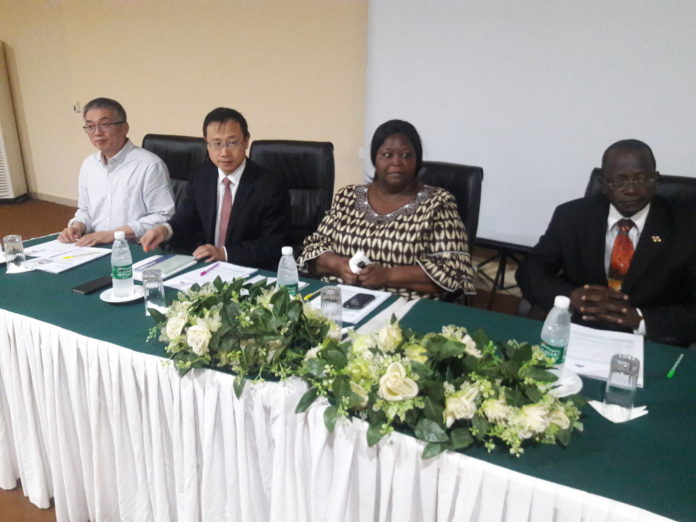By Nelson Manneh
The Department of Fisheries in partnership with the Food and Agricultural Organization (FAO), on Monday the September 10th 2018, commenced a five day sub-regional training, to enhance the capacity of youth and women in aquaculture.
The training which is sponsored through a three year FAO funded technical cooperation program to support and enhance the capacity of youth and women in Aquaculture, in collaboration with a sub-regional project aimed at creating agribusiness employment opportunities for youth through sustainable aquaculture systems and cassava value chains in West Africa, is designed to enhance employment and wealth creation, reduce poverty and illegal migration.
Speaking at the event, Duty Permanent Secretary at the Ministry of Fisheries, Water resources and National Assembly Matters, Omar Gibba, said climate change and high population growth, poses threat to sustainability of fisheries; that the surest way to guarantee feeding oneself for a lifetime, is not only to teach people how to fish, but teach them how to cultivate fish.
“I was able to realize that aquaculture is not only about providing food directly, but providing income for farmers to improve their livelihood,” he said.
He urge participants to take the opportunity provided them, in other to improve in the aquaculture and acquired a decent living.
For her part, the FAO country representative Perpetua Katepa-Kalala, said aquaculture is probably the fastest growing food processing sector, and accounts for nearly 50 percent of the world’s food fish.
“The overall growth in Aquaculture production remains relatively strong, owing to the increasing demand for food fish among most producing countries,” she said; that according to FAO statistics, Fisheries and Aquaculture is a major sector for food security and nutrition, with global production of fish, crustaceans, mollusks and other aquatic animals, continuing to grow, reaching 170.9 million tons in 2016; that out of this total, captured production was 90.9 million tons.
“Allow me to mention, that the most recent official statistics indicate, that 59.6 million people were engaged in the primary sector of captured fisheries and aquaculture in 2016, with 19.3 million people engaged in Aquaculture and 40.3 million people engaged in fisheries. The proportion of those employed in captured fisheries, decreased from 83 percent in 1990, to 68 percent in 2016, while the proportion of those employed in Aquaculture, correspondingly increased from 17 to 32 percent, “she highlighted.
Katepa-Kalala added, that the workshop is intended to enhance the capacity of both officers and farmers in developing business acumen, in order to facilitate the transformation of aquaculture in Africa, into an economically vibrant and sustainable sector. “The workshop will help participants to assess the profitability level and financial wealth of aquaculture farms, to make good investment decisions,” she concludes.

















